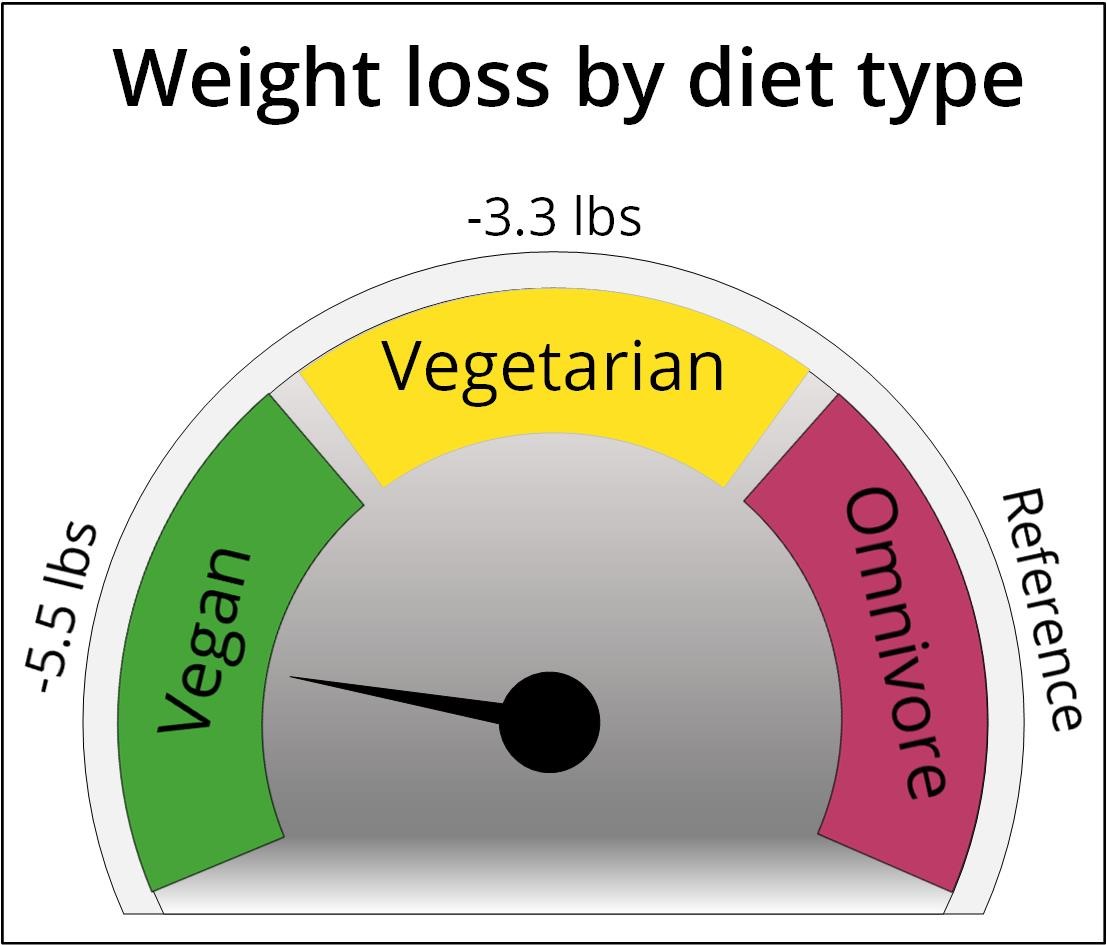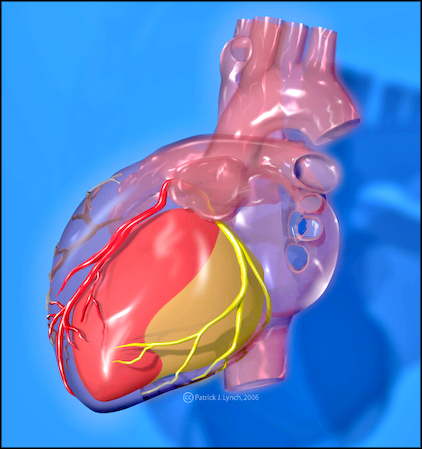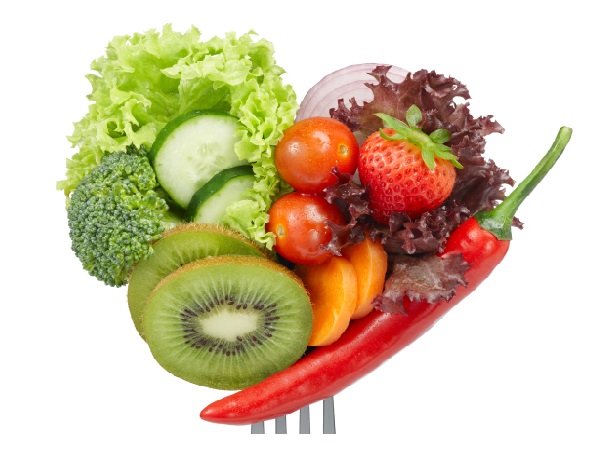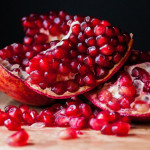
Author’s note: This is part 2 in our 6-week Plant-Based 101 series. (See Part 1: What is a Plant Based Diet? and Part 3: What No One Tells You About Protein)
Are you thinking of eating a plant-based diet, or do you already eat this way? If so, congratulations! You’re taking an epic step for your health.
In this post, we’re going to talk about 6 ways a plant based diet can help prevent (or even treat) disease and supercharge your health.
Before we go any further, I also have a confession to make. I used to think that a plant-based diet was not only ridiculous, but possibly dangerous. In fact, if it weren’t for a breast cancer scare, I doubt I would have ever considered plant-based eating. I even went so far as to discourage my own mother years ago when she was thinking of becoming a vegetarian, because I thought it was “out there” and maybe even harmful.
However, after digging into the research, I found out I was dead wrong. I’ve since learned that eating plant-based is linked a lower risk of many scary diseases—breast cancer included. What’s more, vegetarian and vegan diets are tied to a host of health benefits.
No need to take my word for it, though. Let’s check out 6 proven ways a plant-based diet can help you look and feel your best.
1. Boost weight loss
People on plant-centered diets lose more weight. I experienced this for myself when I went plant based for breast health and lost 10 pounds. (Best. Side effect. Ever!)
Turns out I’m not alone. In 2015, Harvard researchers and scientists in Taiwan examined 12 different “gold-standard” nutrition studies. In these studies, participants were randomly assigned to eat either omnivorous or plant-based diets. Compared to omnivores, those on a vegetarian diet (including milk and eggs) lost 3.3 extra pounds, and those on pure plant-based (vegan) diets lost 5.5 extra pounds.

People tend to lose more weight on plant based diets.
Why the difference? Scientists suspect that fiber-rich whole grains, vegetables, and nutrient-dense fruit all enhanced weight loss.1
2. Slash diabetes risk
Little-known fact: Eating meat is strongly linked to type 2 diabetes. To illustrate, a study of 60,903 Adventists in California found that the more plant-based people’s diets were, the less likely they were to have type 2 diabetes:

Compared to omnivores, vegans are about half as likely to have diabetes. Note: To be clear, omnivores do NOT have a 100% chance of having diabetes! But they do have 100% of an omnivore’s risk of having diabetes.
As you can see, vegans are only 51% as likely to have type 2 diabetes as omnivores, who are at the highest risk. Fish-eating vegetarians fall in the middle, being 76% as likely as omnivores to have diabetes. Even more interesting, researchers accounted for age, gender, education, income, exercise, and a host of other factors when calculating these numbers.2 To be fair, this is just a snapshot in time—but the pattern is striking.
So, why the trend? First, animal protein itself may cause problems with insulin signaling and blood sugar. However, the effect may result from more than omitting animal products. In this study, vegans ate about 1/3 more fruits and vegetables than non-vegetarians. Finally, those on plant-based diets also typically eat less saturated fat—and saturated fat can worsen diabetes.2
Alarmingly, a smaller study using U.S. government data also found that, in comparison to a low-protein diet, eating lots of protein—especially animal protein—is linked to a 500% (!) higher risk of death from diabetes.3 Thus the authors of this study wrote:
“…our findings suggest that a diet in which plant-based nutrients represent the majority of the food intake is likely to maximize health benefits in all age groups”
Another study of more than 25,000 Europeans found that the more animal protein people ate, the higher their risk for diabetes. Plant protein, however, was not linked to diabetes.4
Makes that veggie burger look better than ever, no?
3. Lower heart disease risk
Multiple diet styles can help improve certain types of blood cholesterol, including Mediterranean, low-carbohydrate, and low glycemic index.5 However, when it comes to the risk of actually dying of a heart attack, plant-based diets rule. Specifically, an analysis of 7 studies—including data from 124,706 people—found that vegetarians are 29% less likely to die of a heart attack than omnivores.6

Vegetarians have a 29% lower risk of dying of a heart attack compared to omnivores.
Click here for 5 unusual ways to reduce heart disease risk.
4. Help open clogged arteries

What’s more, a very-low-fat vegetarian or vegan diet (~10% of calories from fat) is the only diet I know of that’s clinically proven to actually help unclog arteries. That’s right: Small but carefully run studies have shown that a low-fat plant-based diet can actually help re-open arteries.7,8 That means eating a low-fat, plant-based diet may not just halt heart disease, but could help reverse it.
5. Cut cancer risk
Being vegetarian is also linked to a lower risk of cancer. In fact, the same analysis that found that vegetarians are less likely to have a heart attack also found that they are 18% less likely to develop cancer than omnivores.6

Vegetarians are 18% less likely to develop cancer than omnivores.
While this doesn’t hold for every type of cancer, it certainly got my attention. Yet it’s not so surprising, considering that the World Health Organization just classified red and processed meats as carcinogenic.
Another study of nearly 22,000 North American women found that vegan women have a 34% lower risk of all female cancers (breast, ovarian, etc.) combined. Why? Vegan women tend to be slimmer and have lower blood levels of a growth-promoting chemical called insulin-like growth factor, or IGF-1.9 And IGF-1 tells cells to grow, grow, grow!10 Which isn’t great if those happen to be cancer cells in the breast. (Read more about IGF-1 here, or check out this post to learn how to make your blood toxic to breast cancer cells!)
6. Feed friendly intestinal flora—and decrease inflammation

Plant-based diet = friendly flora
I hope I’m not the first one to tell you this, but microbes on and in the human body outnumber our own cells 10 to 1.
Most of these “bugs” live in the intestine, so they pretty much eat what we eat. Thus it’s not too surprising that those on a vegan diet would have a different sort of zoo in there than omnivores. What’s neat, though, is that vegans tend to breed healthier bacteria in their intestines.
Specifically, small studies have found that vegans have higher levels of protective microbes and lower levels of bacteria that can trigger inflammation. While we’re just scratching the surface when it comes to our gut flora, these findings make a pretty good case for eating plants!11
Wrap up
Were you surprised to learn that plant-based diets are so powerful? I know I was—you could have knocked me over with a feather when I first started reading the science.
That said, even with all the evidence, I’m not claiming that plant-based diets are the end-all, be-all. I’m the first to admit that there’s more than one healthful way to eat.
However, as you can see, a plant based diet is powerful prevention when it comes to scary diseases like diabetes, heart disease, and even some types of cancer. Not to mention the added benefits of speeding weight loss and feeding microbes that keep your insides happy. So when it comes to my own health, I choose plants. (Of course, tell your doctor about any changes you plan to make to your diet—especially if you have a health condition.)
While there’s always more to learn, I hope I’ve covered the basics. Be sure to check back next week, when I’m going to tackle a question that almost everyone has about plant-based diets: If you’re only eating plants, where do you get your protein?
Your turn:
- Which of these 6 surprise you?
- Do you agree with these studies?
- Did you switch to a plant-based diet for any of the reasons in this post?
Tell me about it in the comments—I’m looking forward to hearing your thoughts!
Click here for references and image credits2. Tonstad S, Butler T, Yan R, Fraser GE. Type of Vegetarian Diet, Body Weight, and Prevalence of Type 2 Diabetes. Diabetes Care. 2009;32(5):791-796. doi:10.2337/dc08-1886. http://www.ncbi.nlm.nih.gov/pmc/articles/PMC2671114/
3. Levine ME, Suarez JA, Brandhorst S, et al. Low Protein Intake is Associated with a Major Reduction in IGF-1, Cancer, and Overall Mortality in the 65 and Younger but Not Older Population. Cell metabolism. 2014;19(3):407-417. doi:10.1016/j.cmet.2014.02.006. http://www.ncbi.nlm.nih.gov/pmc/articles/PMC3988204/
4. van Nielen M, Feskens EJ, Mensink M, et al. Dietary protein intake and incidence of type 2 diabetes in Europe: the EPIC-InterAct Case-Cohort Study. Diabetes Care. 2014 Jul;37(7):1854-62. doi: 10.2337/dc13-2627. Epub 2014 Apr 10. http://care.diabetesjournals.org/content/37/7/1854.full.pdf+html
5. Ajala O, English P, Pinkney J. Systematic review and meta-analysis of different dietary approaches to the management of type 2 diabetes. Am J Clin Nutr. 2013 Mar;97(3):505-16. doi: 10.3945/ajcn.112.042457. Epub 2013 Jan 30. http://ajcn.nutrition.org/content/97/3/505.long
6. Huang T, Yang B, Zheng J, Li G, Wahlqvist ML, Li D. Cardiovascular disease mortality and cancer incidence in vegetarians: a meta-analysis and systematic review. Ann Nutr Metab. 2012;60(4):233-40. doi: 10.1159/000337301. Epub 2012 Jun 1. http://www.karger.com/Article/FullText/337301
7. Esselstyn CB Jr, Ellis SG, Medendorp SV, Crowe TD. A strategy to arrest and reverse coronary artery disease: a 5-year longitudinal study of a single physician’s practice. J Fam Pract. 1995 Dec;41(6):560-8. http://www.ncbi.nlm.nih.gov/pubmed/7500065 ; Esselstyn CB Jr, Gendy G, Doyle J, Golubic M, Roizen MF. A way to reverse CAD? J Fam Pract. 2014 Jul;63(7):356-364b. http://dresselstyn.com/JFP_06307_Article1.pdf
8. Ornish D et al. Intensive lifestyle changes for reversal of coronary heart disease. JAMA. 1998 Dec 16;280(23):2001-7. Erratum in: JAMA 1999 Apr 21;281(15):1380. http://ornishspectrum.com/wp-content/uploads/Intensive-lifestyle-changes-for-reversal-of-coronary-heart-disease1.pdf
9. Tantamango-Bartley Y, Jaceldo-Siegl K, Fan J, Fraser G. Vegetarian diets and the incidence of cancer in a low-risk population. Cancer Epidemiology, Biomarkers & Prevention. 2013;22(2):286-294. doi:10.1158/1055-9965.EPI-12-1060. http://www.ncbi.nlm.nih.gov/pmc/articles/PMC3565018/
10. Kleinberg DL, Wood TL, Furth PA, Lee AV. Growth hormone and insulin-like growth factor-I in the transition from normal mammary development to preneoplastic mammary lesions. Endocr Rev. 2009 Feb;30(1):51-74. doi: 10.1210/er.2008-0022. Epub 2008 Dec 15. http://edrv.endojournals.org/content/30/1/51.long
11. Glick-Bauer M, Yeh MC. The health advantage of a vegan diet: exploring the gut microbiota connection. Nutrients. 2014 Nov; 6(11): 4822–4838. Published online 2014 Oct 31. http://www.ncbi.nlm.nih.gov/pmc/articles/PMC4245565/
Image credits
- Woman with balloons: iStock Photo/Getty Images
- IGF-1: EMW via CC BY-SA 3.0
- Happy belly (“mah belly has a happy”): By KayVee.INC via CC BY-NC 2.0
- Coronary arteries (“heart coronary arteries”): By Patrick J. Lynch via CC BY 2.0
- All other images by Veggie Quest
Shared on
Healthy, Happy, Green and Natural, Healthy Vegan Fridays.




 I'm Lee, an RD thriving on a healthy plant based diet.
I'm Lee, an RD thriving on a healthy plant based diet.
Having been plant based for several years, I can’t tell you how much better I feel.
I know, it really is amazing. I think of how I used to feel and I wish I’d made the switch sooner!
How could anyone now want to incorporate plant-based eating after reading this? Compelling stuff – #5 is why I went vegan.
Great read. And thank you so much for sharing this at Healthy Vegan Fridays – I’m pinning and sharing.
Have a great day Lee!
Hi Kimmy, that’s pretty much how I feel, too, although I get that change can be really hard! Anyway, thanks for sharing why you made the shift. Your story, as described on your blog, is really compelling. To any readers checking out this comment, I highly recommend you visit Kimmy’s blog, Rock My Vegan Socks.
This was a powerful post. I am trying to get my family to get on board with an all plant-based diet. I have reduced the meat intake substantially, but I have teenage sons who are not cooperating. Hopefully with time and knowledge they will get on board. Thank you for stopping by Healthy, Happy, Green & Natural Party Hop!
Thanks for the kind words, Kay! I hope this post gave you some discussion points, although maybe I should have mentioned the benefits for athletic performance for your sons! (They might like No Meat Athlete. Worth checking out!) Anyhow, good for you for cutting back on meat even with pushback from your sons. Progress, not perfection, is my motto. Every little bit helps!
I am so delighted that you shared 6 ways a plant based diet can help prevent (or even treat) disease and supercharge your health at the Healthy Happy Green and Natural Party!T I come from a family of relatives who suffered from diabetes, high cholesterol and high blood pressure. Following a plant-based diet has been healthy for me. I have not developed any of the diseases that plague family members. Thank you so much for sharing your gems and for your support! Pinning and sharing! All the best, Deborah
Wow, Deborah, that’s amazing! Plant-based eating really is powerful, isn’t it? I’m always surprised at how few people know about the benefits, given how helpful eating this way can be. I mean, I dropped 10 pounds when I made the switch–and lowered my cholesterol. My husband dropped 25 pounds, dropped his cholesterol, and normalized his blood pressure. Thanks for helping spread the word–Urban Naturale/Healthy-Green-Natural is a great resource!
“High total and animal protein intake was associated with a modest elevated risk of type 2 diabetes in a large cohort of European adults.”
Diabetes Care. 2014 Jul;37(7):1854-62
You state, that there is a roughly 50% difference. That would not be modest. Could it be that you are misrepresenting the facts?
Overall it appears to me that you may be cherry picking studies here. Recent studies in large cohorts rather indicate that eating vegan does basically nothing for you, when it comes to overall mortality, and even when it comes to several cancer forms (including colorectal):
https://blog.rosemarycottageclinic.co.uk/2016/01/18/uk-vegetarians-dont-live-longer-than-meat-eaters-study-finds/
Hi Dave: Per the results of the Adventist Health Study-2 (AHS-2), which is cited in this article, vegans did indeed have a 50% lower risk of having type 2 diabetes. AHS-2 is unique in that it looks at a large U.S. population of individuals living a relatively healthy lifestyle and varying predominantly in their intake of animal products. This allows animal product intake to be more effectively isolated as a variable.
The European data you’re referring to is from the European Prospective Investigation into Cancer and Nutrition, or EPIC study. What they found was a “modest” dose-response relationship between protein intake and type 2 diabetes risk. For every 10 g (less than half an ounce!) of animal protein someone consumed daily, their risk for developing type 2 diabetes increased by about 5%. That’s actually fairly substantial, given that a 3-oz serving of chicken is 85 grams. This same study found no relationship between plant protein intake and diabetes, suggesting the increase in risk was due to animal protein.
Here’s a meta-analysis of cohort studies showing a significant increase in risk for type 2 diabetes with red and processed meat intake, which are particularly risk when it comes to developing diabetes: https://www.ncbi.nlm.nih.gov/pmc/articles/PMC3173026/
And I take no issue with a single study finding no significant difference in all-cause mortality between vegans and omnivores in the UK. As you pointed out, a single study does not a conclusion make. Indeed, a recent meta-analysis did not find a difference in cancer mortality between vegans and omnivores, but did find a difference in heart disease mortality and cancer incidence. Here are the authors’ conclusions, verbatim from the abstract: “This comprehensive meta-analysis reports a significant protective effect of a vegetarian diet versus the incidence and/or mortality from ischemic heart disease (-25%) and incidence from total cancer (-8%). Vegan diet conferred a significant reduced risk (-15%) of incidence from total cancer.” https://www.ncbi.nlm.nih.gov/pubmed/26853923
Is a vegan diet a panacea? No. But a whole-food, plant-based diet does appear to be protective against heart disease, type 2 diabetes, and cancer, and I’m all about stacking the odds in my favor.